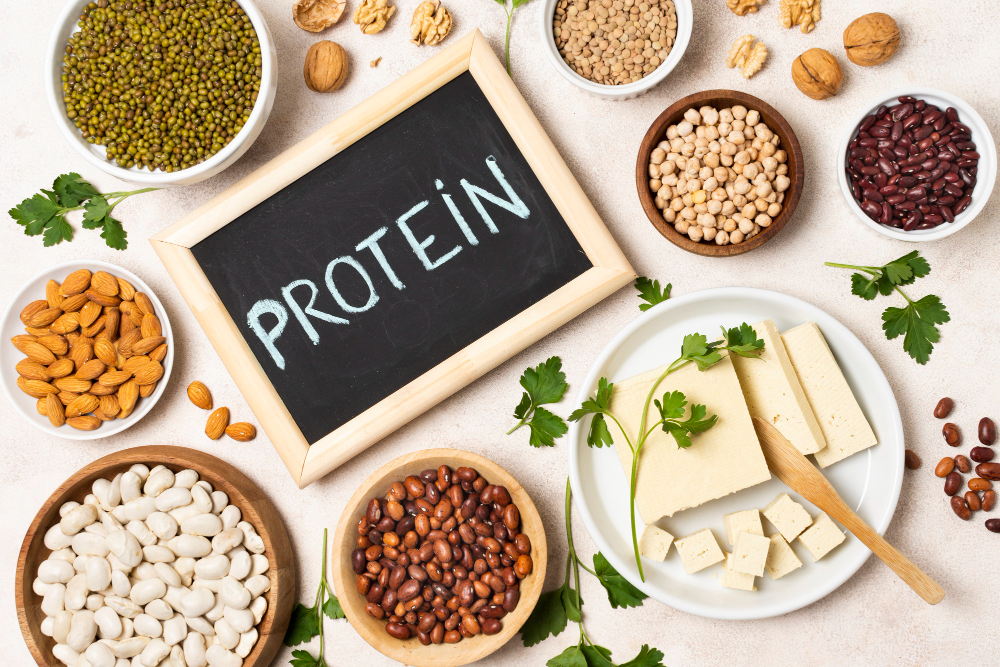Plant-based proteins are becoming more popular as people look for alternatives to animal-derived sources of protein. Plant-based proteins can offer many benefits, such as being lower in saturated fat, cholesterol, and environmental impact. However, not all plant-based proteins are created equal. Some may have higher or lower amounts of essential amino acids, fiber, minerals, and other nutrients than others. In this article, we will compare hemp protein to other popular plant-based protein sources like pea, soy, and rice proteins, highlighting its unique qualities.
What is Organic Hemp Protein?
Organic Hemp protein is derived from the seeds of the hemp plant with organic certificate, which belongs to the same family as cannabis. However, hemp seeds contain only trace amounts of THC, the psychoactive compound found in marijuana, so they do not have any intoxicating effects. Hemp seeds are rich in protein, fiber, omega-3 and omega-6 fatty acids, magnesium, iron, zinc, and other minerals. Hemp protein is made by grinding the seeds into a fine powder, which can be added to smoothies, shakes, baked goods, and other foods.
How Does Hemp Protein Compare to Other Plant-Based Proteins?
Hemp protein has some advantages and disadvantages compared to other plant-based proteins. Here are some of the main differences:
- Amino Acid Profile: Hemp protein is one of the few plant-based proteins that contains all nine essential amino acids, which are the building blocks of proteins that the body cannot produce on its own. However, hemp protein is relatively low in lysine, one of the essential amino acids that is important for muscle growth and repair. Pea and soy proteins are also complete proteins, but they have higher amounts of lysine than hemp protein. Rice protein is incomplete, meaning it lacks one or more essential amino acids, namely lysine.
- Digestibility: Hemp protein is considered to have a moderate digestibility, meaning it is not as easily absorbed by the body as some other proteins. This is because hemp protein contains a high amount of fiber, which can slow down the digestion and absorption of nutrients. Fiber can also cause bloating and gas in some people who are not used to it. Pea and rice proteins have higher digestibility than hemp protein, while soy protein has lower digestibility due to its anti-nutrients such as phytates and lectins.
- Allergenicity: Hemp protein is hypoallergenic, meaning it is unlikely to cause allergic reactions in most people. This makes it a good choice for people who have allergies or sensitivities to common allergens such as dairy, eggs, gluten, nuts, or soy. Pea and rice proteins are also hypoallergenic, while soy protein is one of the most common allergens among plant-based proteins.
- Environmental Impact: Hemp protein is considered to be one of the most sustainable and eco-friendly sources of protein. Hemp plants grow fast and do not require much water, pesticides, or fertilizers. They also improve soil quality by preventing erosion and adding nutrients. Hemp seeds can be harvested multiple times per year from the same plant. Pea and rice proteins are also relatively low-impact crops compared to animal-derived proteins, while soy protein has a higher environmental impact due to its large-scale cultivation and deforestation.
Conclusion
Hemp protein is a versatile and nutritious plant-based protein that can offer many benefits for health and the environment. It is a complete protein that contains all nine essential amino acids, although it is low in lysine. It is also rich in fiber, healthy fats, and minerals. However, hemp protein may not be as digestible as some other proteins due to its high fiber content. It is also hypoallergenic and eco-friendly compared to other plant-based proteins.
Hemp protein can be a great addition to your diet if you are looking for a plant-based protein that is natural, wholesome, and sustainable. You can use hemp protein powder to boost your protein intake in smoothies, shakes, baked goods, and other recipes.

